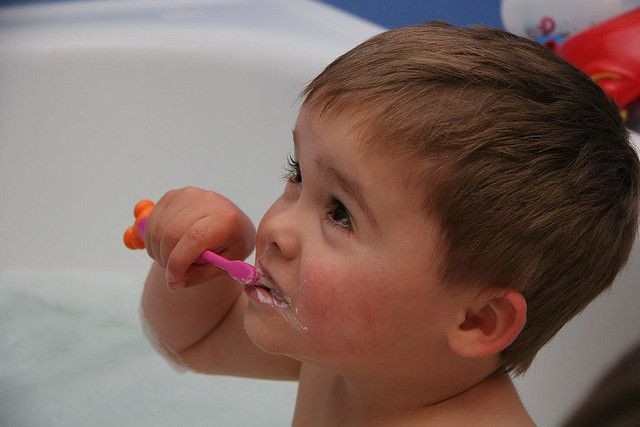Mom's Emotional Health Can Impact Child's Oral Health

New research suggests the emotional health and education level of mothers during their children's adolescent years, can impact their child's oral health.
Lead study author Suchitra Nelson, from the Case Western Reserve University's School of Dental Medicine, assessed the oral health of teens and worked backwards to the age of three to determine what factors influenced past oral health outcomes.
Nelson studied the teeth of 224 adolescents in a longitudinal study. Nelson and her team followed children who had a low birth weight as well as those who were born at a normal birth weight. The researchers also collected health and medical information from the children and their mother's to gauge the children's wellbeing at ages three, eight and 14. Researchers also analyzed a teen's oral health by assessing the level of dental plaque and tallying the number of decayed, filled or missing permanent teeth.
Mothers were instructed to fill out a questionnaire regarding their preventative measures, access to dental care and frequency of dental visits.
The study revealed the source of teen's oral health was dependent on the mothers' overall emotional health, education level and knowledge when the children were at ages three and eight. Even if children had access to dental care, if mothers struggled with any of the three areas, teens were more likely to have high number of oral health problems by 14.
"We can't ignore the environments of these children," Nelson said. "It isn't enough to tell children to brush and floss, they need more-and particularly from their caregivers."
On the contrary, mothers who had an education level surpass high school, healthy emotional state and knowledgeable about eating right, overall had healthier teens.
Nelson recommends that moms should first take care of themselves so they will be able to care for their children. To illustrate the point, he gives the example of being on an airplane mothers are instructed to put on the mask first and then their children's.
"How can a mother help her child if she passes out?" asks Nelson. "It's all common sense, but some mothers may need help."
The study was published in the Journal of Dental Research.



























